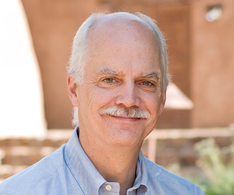 James Trostle, Charles A. Dana Research Professor of Anthropology, has been awarded a Fulbright grant to teach a graduate seminar at the University of Chile in Santiago. The Fulbright, which will run from March through July 2014, will also allow Trostle to lecture at different sites in Chile, and conduct research on the health impact of road development.
James Trostle, Charles A. Dana Research Professor of Anthropology, has been awarded a Fulbright grant to teach a graduate seminar at the University of Chile in Santiago. The Fulbright, which will run from March through July 2014, will also allow Trostle to lecture at different sites in Chile, and conduct research on the health impact of road development.
A medical anthropologist with training and experience in epidemiology and public health, Trostle was seeking an opportunity to travel to a country where he could continue his research on the health effects of social change.
Chile, as it turns out, will afford him a chance to do just that. As Trostle wrote in his Fulbright proposal, “Chile offers a number of benefits for this project: it has a long and creative history of community public health, it has undergone rapid rural and urban social and economic development, and it has a strong educational system.”
Trostle’s teaching and research will emphasize an interdisciplinary approach, making use of collaborations between social scientists, epidemiologists, health-care specialists and even ecologists and geographers.
A member of Trinity’s faculty since 1998, Trostle will teach a course from among the following: “Introduction to Medical Anthropology,” Anthropology and Epidemiology,” or “The Anthropology of Global Health.” He has experience teaching similar courses in Spanish at the graduate level in both Mexico and Argentina.
As for his research, it has been directed toward using anthropological and epidemiological methods and theories to explore issues such as adaptation to chronic disease, use of medications, transmission of infection disease, and the health effects of rapid social change. In Chile, Trostle will seek to work with research teams that are engaged in studies of the health and social changes prompted by development projects such as inter-city roads or other construction projects.
Trostle’s work in Chile will build on the 12 years of research that he has done in Ecuador that has examined how construction of a new two-lane paved road in a previously road-less border region in that coastal South American country has changed the residents’ social lives and disease transmission. In essence, Trostle has asked the question: “What happens in terms of social, environmental and health changes when a road gets built in a place where no road existed before?”
Although it might seem that a road would not cause upheaval, in the area in Ecuador that Trostle studied, most people and goods had previously traveled by horse or boat. The road was a catalyst for the movement of valuable natural resources and population growth.
In his Fulbright proposal, Trostle explained, “The research [in Ecuador] is interdisciplinary and longitudinal. Its methods and results are relevant to many other types of construction projects (so-called ‘linear intrusions’: railroads, canals, pipelines, electrical transmission lines) that change how people, products, and pathogens move across landscapes.
In Chile, Trostle will be exploring similar themes, such as do changes to the environment foment social change and affect public health, the transmission of disease, diet and the movement of pathogens.




